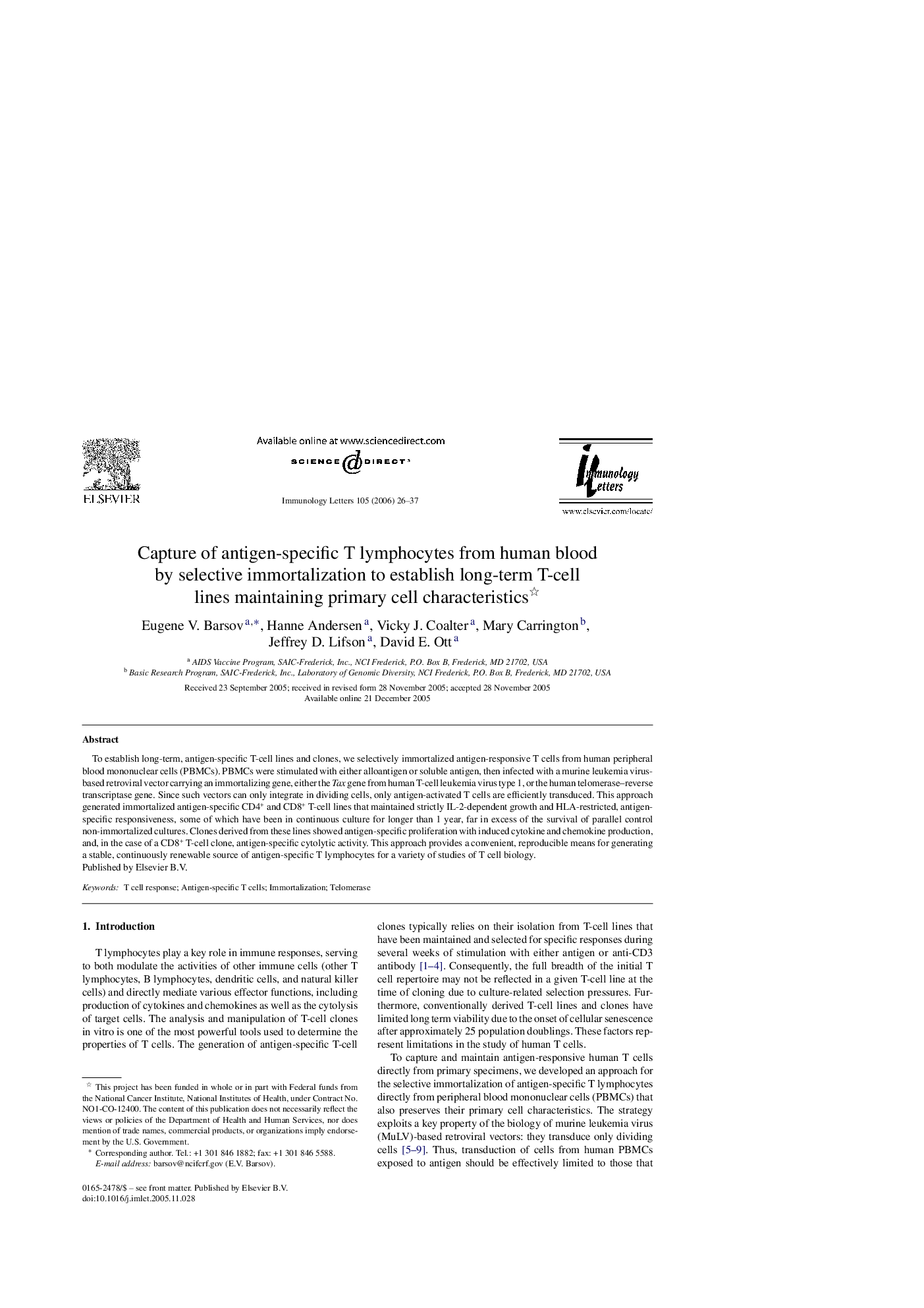| Article ID | Journal | Published Year | Pages | File Type |
|---|---|---|---|---|
| 3356499 | Immunology Letters | 2006 | 12 Pages |
To establish long-term, antigen-specific T-cell lines and clones, we selectively immortalized antigen-responsive T cells from human peripheral blood mononuclear cells (PBMCs). PBMCs were stimulated with either alloantigen or soluble antigen, then infected with a murine leukemia virus-based retroviral vector carrying an immortalizing gene, either the Tax gene from human T-cell leukemia virus type 1, or the human telomerase–reverse transcriptase gene. Since such vectors can only integrate in dividing cells, only antigen-activated T cells are efficiently transduced. This approach generated immortalized antigen-specific CD4+ and CD8+ T-cell lines that maintained strictly IL-2-dependent growth and HLA-restricted, antigen-specific responsiveness, some of which have been in continuous culture for longer than 1 year, far in excess of the survival of parallel control non-immortalized cultures. Clones derived from these lines showed antigen-specific proliferation with induced cytokine and chemokine production, and, in the case of a CD8+ T-cell clone, antigen-specific cytolytic activity. This approach provides a convenient, reproducible means for generating a stable, continuously renewable source of antigen-specific T lymphocytes for a variety of studies of T cell biology.
